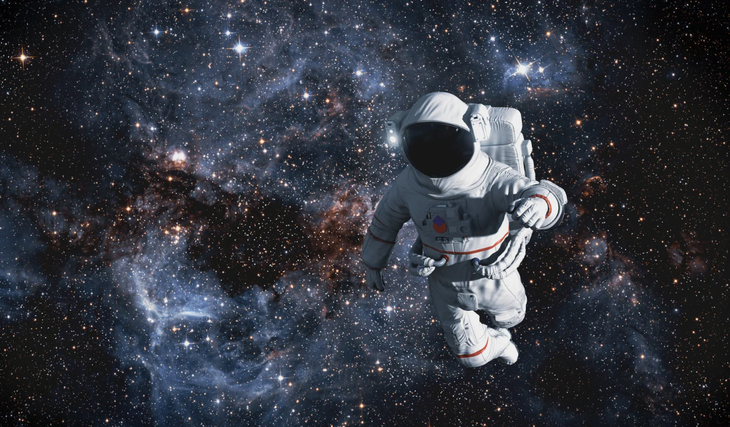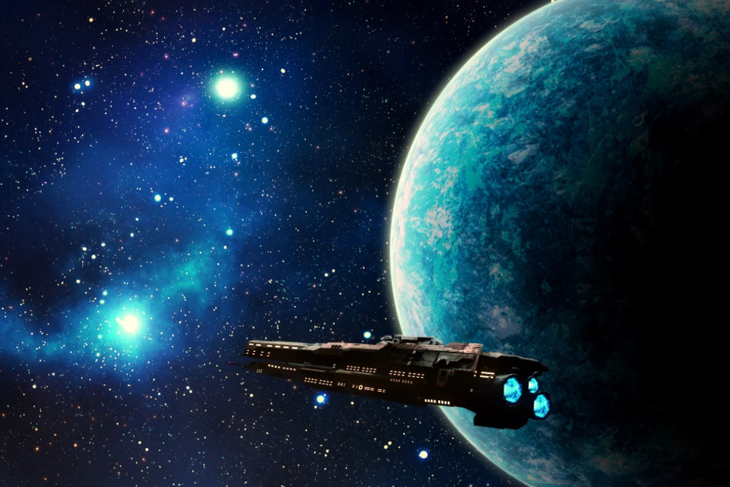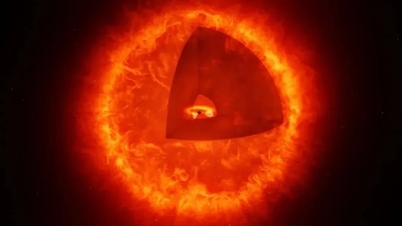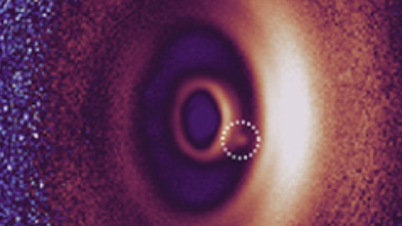
Does the universe really have a smell or is it just an illusion? - Photo: AI
Even though outer space is a vacuum, with no air to transmit smells, astronauts have repeatedly described distinctive scents after spacewalks.
Science also shows that the "smell" of the universe holds important clues about the chemical composition and formation history of planets, stars and galaxies.
When astronauts "smell space"
After spacewalks, many NASA astronauts have reported smelling like burning flesh, hot metal or welding fumes when they remove their helmets in the International Space Station.
American astronaut Don Pettit once described it as a “pleasant smell of welding fumes” that reminded him of his days working with arc welders. Others have associated it with burning crackers or exploding gunpowder.
During the Apollo missions, lunar dust that clung to the capsule gave off a smell similar to gunpowder, which Apollo 17 astronaut Harrison "Jack" Schmitt said was his most memorable experience.
Scientists believe the cause may be due to oxygen atoms sticking to the surface of the spacesuit and when returning to an air environment, they react to create a metallic smell.
With lunar dust, chemical bonds broken by meteorite impacts could have reacted with oxygen in the cabin to produce a gunpowder-like smell.
Planets, comets and the "scent" of the universe
Not only astronauts' accounts, probes also help humans "smell" the universe by analyzing molecules. The European Space Agency's Rosetta mission once recorded that comet 67P had an unpleasant "mixture of odors": rotten eggs (hydrogen sulfide), horse manure (ammonia), suffocating formaldehyde, bitter almonds (hydrogen cyanide), with a little methanol and vinegar (sulfur dioxide).
Mars is said to have a pungent sulfurous smell like rotten eggs with a touch of sweet chalky sweetness, due to the soil containing a lot of sulfur, iron, magnesium and chlorine. However, the concentration of this gas in the atmosphere is very low so the smell is only hypothetical.
Saturn's moon Titan, with its atmosphere and lakes filled with methane and ethane, may have a petroleum smell similar to that of petroleum on Earth.
In the Sagittarius B2 molecular cloud at the center of the Milky Way, astronomers have detected dozens of organic molecules, including ethyl formate, the compound responsible for the raspberry and rum aromas. But it is just one molecule in a complex chemical mix that also includes ethylene glycol (antifreeze), ethanol (alcohol), acetone (nail polish remover), and hydrogen sulfide (rotten egg odor).
What this means is that, while it may sound romantic that the "center of the Milky Way smells like raspberries and rum," the chemical mixture is so diluted that it's barely detectable and would be quite unpleasant if actually experienced by humans.
Why is studying the "smell of the universe" important?

Analyzing the odors from organic molecules in interstellar clouds also opens the door to astrochemistry, the field that studies the formation of stars, planets and complex organic compounds in the universe - Photo: AI
Each scent is associated with a specific molecule or group of molecules. When these molecules are detected, scientists gain valuable data that can help them build a picture of the chemical composition of a planet, moon, or gas cloud in outer space. This is the basis for understanding how celestial bodies form, evolve, and even change over time.
The presence of sulfur compounds, for example, often suggests volcanic activity or other powerful geological processes. Meanwhile, hydrocarbons, molecules made up of just hydrogen and carbon, are particularly interesting because they may serve as the basic building blocks of life.
Studying odors can also help predict surface conditions, chemical reactions in the atmosphere, or physical cycles such as evaporation, condensation, rain and snow on distant worlds that humans have not yet visited.
In addition, analyzing the odors of organic molecules in interstellar clouds also opens the door to astrochemistry, a field that studies the formation of stars, planets and complex organic compounds in the universe. Each odor signal, each identified molecule is like a "piece" of cosmic history, helping scientists trace back to the early days of the Solar System.
In other words, the study of "cosmic smell" is not only a matter of human curiosity, but also a powerful scientific tool. It helps decipher the past of celestial bodies, provides clues to the possibility of extraterrestrial life, and sheds light on how planets, stars, and our own Earth were formed and developed to this day.
Source: https://tuoitre.vn/he-lo-mui-cua-vu-tru-mo-duong-cho-con-nguoi-tim-su-song-ngoai-trai-dat-20250915204517184.htm



































![[Photo] Keep your warehouse safe in all situations](https://vphoto.vietnam.vn/thumb/1200x675/vietnam/resource/IMAGE/2025/10/1/3eb4eceafe68497989865e7faa4e4d0e)





























































Comment (0)